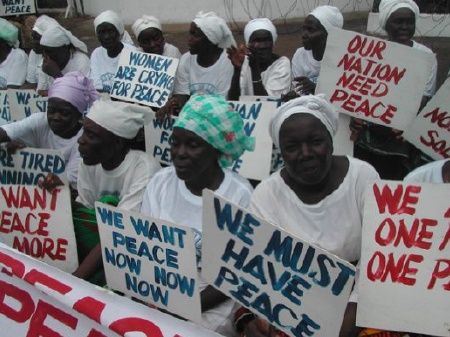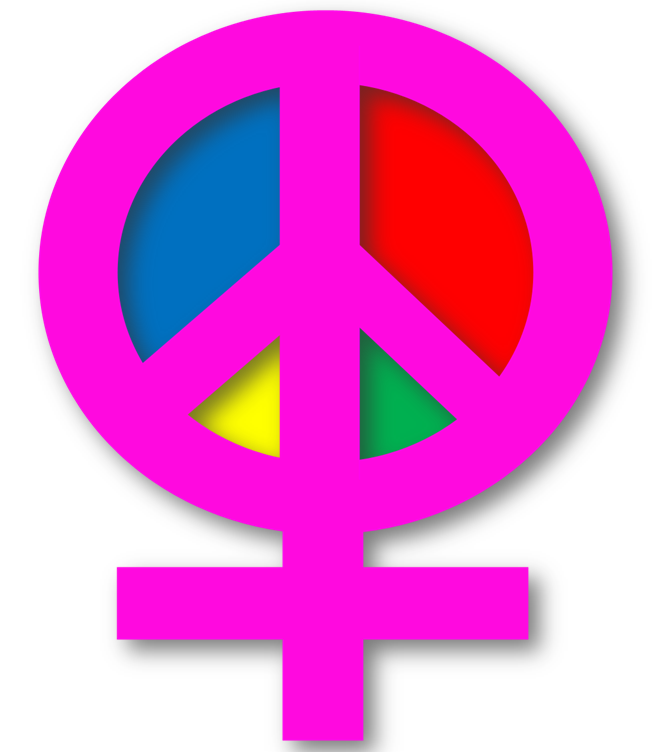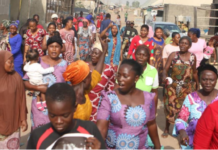by Josephine Alabi

Many women (like most men) in any organization, union, home, community and in the society at large are peacemakers. Poor and working class women are willing to promote the spirit of unity, the spirit of understanding and solidarity with other poor and working class people.
How can we define Peace?
Peace is not just the absence of war or absence of hostilities. Peace is a situation where the majority of people have security, know they can obtain justice in any given situation and appreciate that there are well-defined rules and regulations that govern their actions as well as the actions of others (especially the rich and powerful). It is a situation where they are not hungry, they have shelter and they believe they and their families and friends are being treated fairly.
Peace also means the agreement by various groups to work harmoniously together, contented that their economic rights are provided for, political rights are protected and their social rights are guaranteed.
Peace means a pervading belief that those in authority will promote the rule of law and order, and maintain practices that are equally beneficial to every citizen. All citizens including the poor and helpless will be treated fairly and protected from the actions of the rich and powerful.
Particularly, peace means the deep acceptance of the differences that exists among people, the practice of clear and determined processes that do not jeopardise or invade the rights of the poor majority. To promote peace, there must be a clear and innate knowledge and belief that the actions of the few wealthy and powerful do not jeopardise the rights of the poor majority.
So peace also means that the actions of the rich and powerful are limited. This will usually require the weak and poor to work collectively together to force the elite to behave fairly.
How can women be relevant?
The role of women in peace building must be one that incorporates and mainstreams poor and working class women into all major programmes that affect social change. Effective mainstreaming and development strategies must be embedded in concrete actions and programmes which are clearly defined as working strategies of governments.
Such concrete strategies and programmes must be in areas like: agriculture, health, education, economy, industry and environment. Women must be equal partners in formulation and execution of all government policies.
The Way forward
Empowering poor women to promote their role in conflict prevention, conflict management and peace-building
Providing high quality and free education (including meals, school uniforms and books) to ensure that all girls are adequately educated
Mobilising resources for poor women in peace-building / women activist groups especially those enabling women to work collectively to defend their rights
Providing training and information to ensure that especially poor women have access to appropriate medical care and can choose if and when they wish to become pregnant
Supporting the machinery of democratic system to fully involve poor women and promotion of transformation mechanisms that mainstream gender equality
Research into traditional norms, values and beliefs that promote a culture of peace, equality and fairness
Encouraging the active role of working class women in their trade unions.









